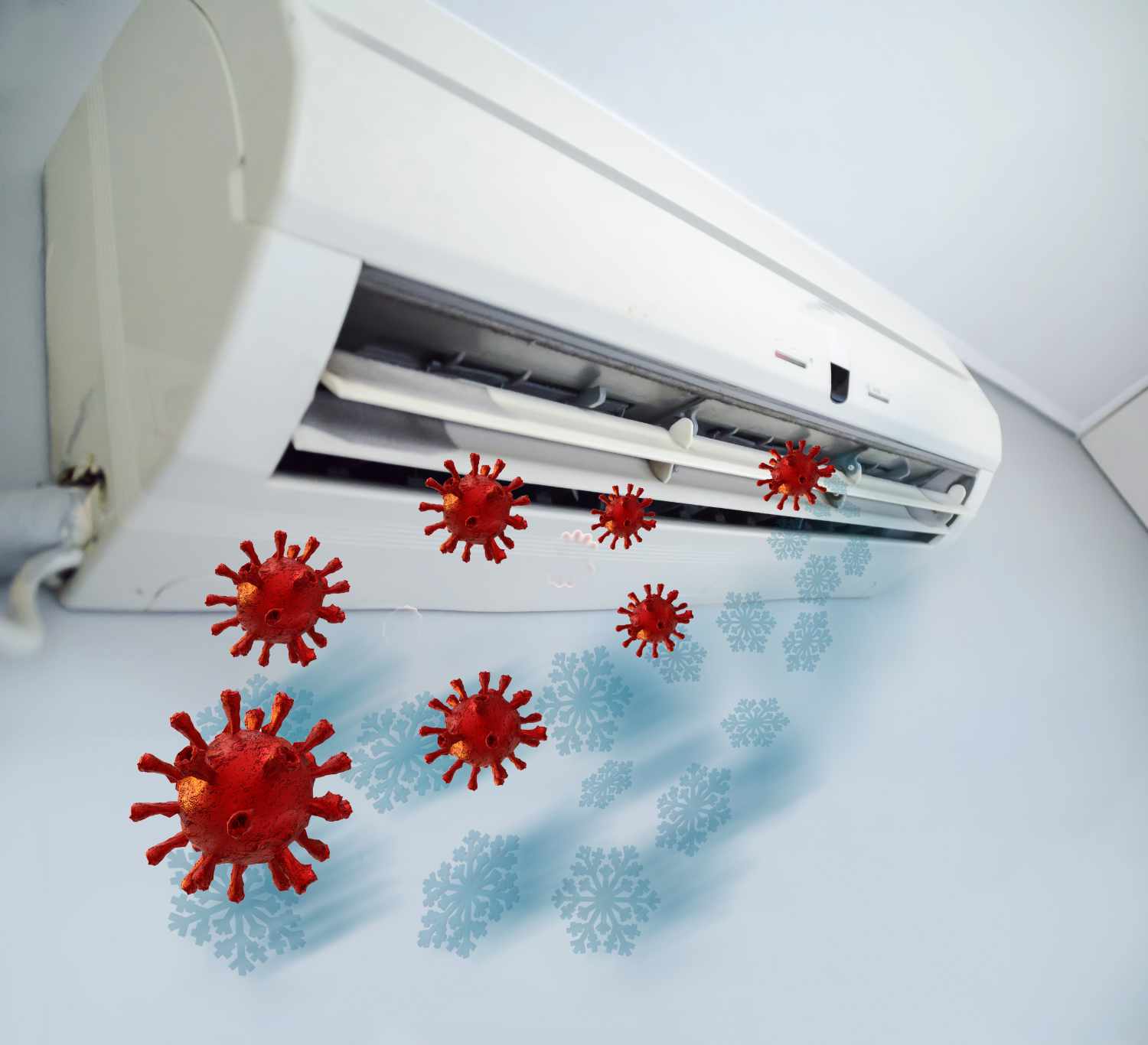
Should air con be on or off to prevent the spread of coronavirus? Ask this question to a room full of people and you’d be lucky to get a consensus. The honest answer is that it depends, but there’s a good deal of misinformation and misunderstanding out there.
In this mini-guide, we aim to cut through the noise. Using information from trustworthy organisations like the Health and Safety Executive (HSE) and the World Health Organization (WHO), we’ve collected three of the most important facts you need to know about commercial air conditioning and workplace safety in the age of coronavirus.
Good ventilation is key to protecting against airborne transmission
According to the HSE, “good ventilation reduces the concentration of the virus in the air and therefore reduces the risks from airborne transmission.”
Advanced HVAC systems deliver air conditioning alongside other building services including ventilation and can combat coronavirus transmission.
According to the WHO: “A well-maintained and operated [HVAC] system can reduce the spread of COVID-19 in indoor spaces by increasing the rate of air change, reducing recirculation of air and increasing the use of outdoor air… HVAC systems should be regularly inspected, maintained, and cleaned.”
It’s important to note, however, that ventilation will have little or no impact on droplet or contact transmission. That’s part of the reason why the HSE recommends social distancing and frequent cleaning and hand washing alongside good ventilation.
But some types of air conditioner will not protect against airborne transmission
Although more advanced HVAC systems can protect against airborne coronavirus transmission, more simplistic split air conditioning units can actually spread the virus.
Split air conditioners are single unit systems that are typically mounted on the ceiling or wall in small businesses and some houses.
Rather than drawing fresh air from outside, these systems recirculate the air. This means they suck air in from the room, heat treat it and blow it back out again. The WHO warns against using this type of air conditioning unit, saying “recirculation modes (which recirculate the air) should not be used” as they can spread the virus.
A Centers for Disease Control and Prevention study blamed this type of air conditioner for spreading the virus in a restaurant in China. It found that one ‘pre-symptomatic’ customer infected nine others because air currents from the air conditioning units pushed virus particles around the room.
We are currently fitting Blue Science retro fit UV-c systems to existing Air Conditioning units which then converts them into a sanitiser unit capable of killing of viruses, bacteria, molds and odours.
The ‘fresh air ratio’ is important in large air conditioning systems
In many modern offices and other buildings, the windows are all sealed. This means the buildings are reliant on mechanical ventilation, usually through a large-scale HVAC system.
These systems pull some air in from the outside before mixing it with some of the air inside the building and circulating it back inside.
The ratio of fresh air from outside to recycled air from inside is known as the ‘fresh air ratio’. Building managers should use as much fresh air as possible, minimising recycled air, to reduce the risk of spreading the virus.
The WHO recommends an “increased ventilation rate through natural or mechanical means” while the HSE says that systems should be set to “maximise fresh air and minimise recirculation”.
The drawback of using 100% fresh air is cost. The incoming air needs to be heated in the winter and cooled in the summer, which will increase energy costs.
Want to learn more about ventilation and air conditioning maintenance and safety during the coronavirus pandemic? Speak to a member of our team. Call: 0800 0857510.
